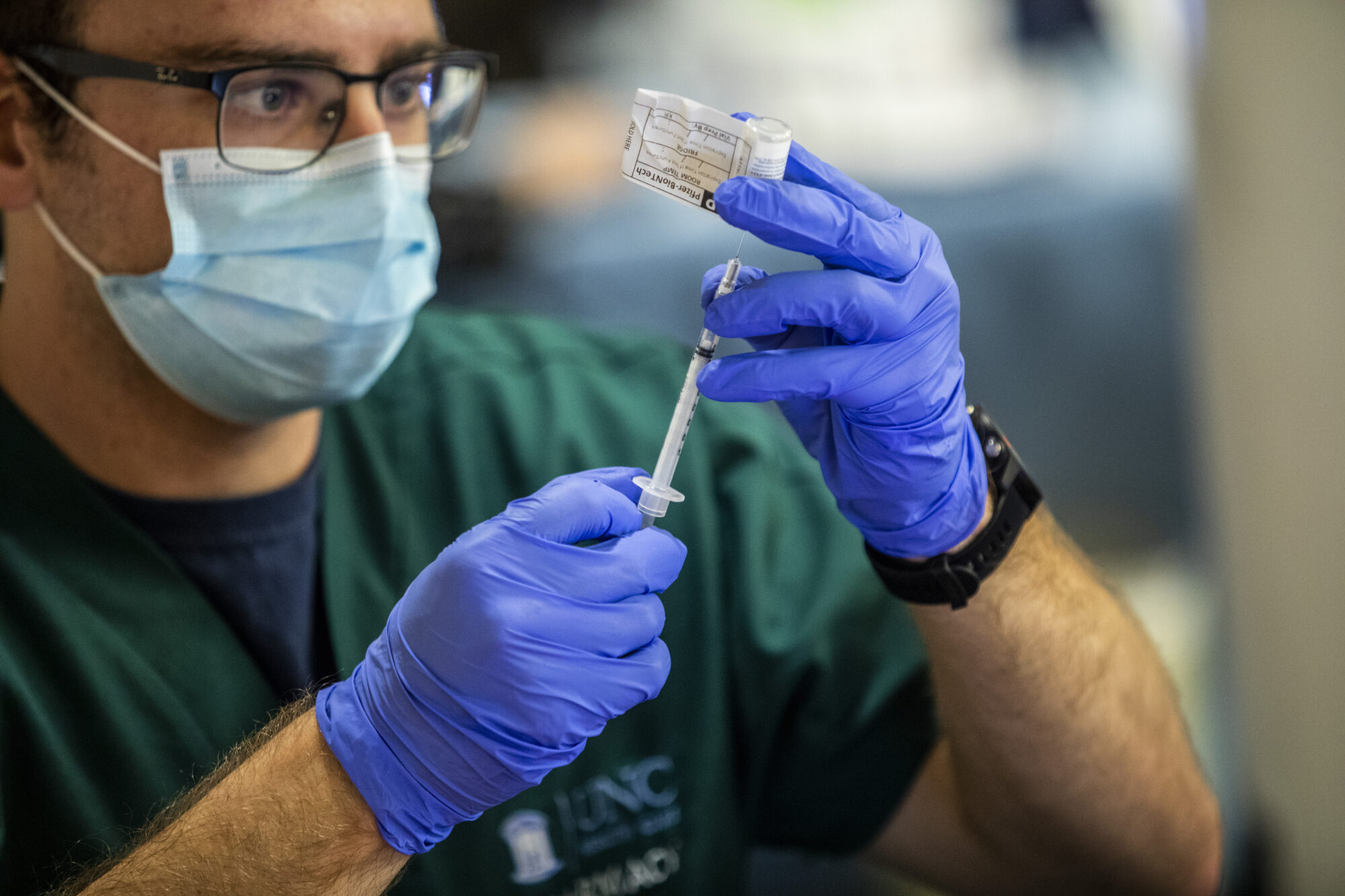Researchers from the UNC School of Medicine have found evidence to suggest that patients with cystic fibrosis possess a much greater number of the proteins that forms mucus, known as mucins.
Associate professor at the department of pathology and laboratory medicine, Dr. Mehmet Kesimer, explains what cystic fibrosis, or CF, is and what it can do.
“Cystic fibrosis is a life-threatening genetic disease that primarily affects the lungs and digestive system,” says Dr. Kesimer. “People with CF have a defective gene, and its protein product causes the body to produce abnormally thick and sticky mucus. That is a problem in the lungs; they cannot clear the mucus very well. That is the life-threatening part of the cystic fibrosis.”
With over 70 thousand people across the globe suffering from this disease, UNC researchers have found that the increased amount of mucins the body produces within patients with cystic fibrosis prevents the mucus from clearing through the lungs, which builds and creates inflammation infection, and lung failure. However, if this increased amount of mucins can be reduced, then there is a greater opportunity for better treatments.
“Our study offers simple therapeutic strategies for treating CF lung disease,” explains Kesimer, “for instance, diluting mucins in the mucus layer by simply hydrating agents.”
Using “nebulized hypertonic saline,” a type of sterile salty water, can improve the hydration of the CF airways in order to help in the patient’s mucus clearance to increase lung function. Utilizing these sorts of solutions for patients can provide a much better means of treatment to reduce risk of the mucus build-up.
Related Stories
‹
![]()
Cystic Fibrosis Awareness MonthMay is national Cystic Fibrosis Awareness Month. Cystic fibrosis is a currently un-curable, life threatening, genetic disease that affects more than 30,000 people in the United States and 70,000 worldwide, according to the Cystic Fibrosis Foundation. What is it like to live with Cystic Fibrosis? A local woman who’s been living with CF disease for thirty-seven […]

Europe Launches a Drive To Attract Scientists and Researchers After Trump Freezes US FundingThe European Union launched a drive to attract American scientists and researchers to Europe with offers of grants and new policy plans.

UNC Health CEO, School of Medicine Dean Dr. Wesley Burks Stepping Down in SeptemberThe UNC Health system announced Tuesday its CEO and the UNC School of Medicine's dean Dr. Wesley Burks will step down on Sept. 1.

AI Is Having Its Nobel Moment. Do Scientists Need the Tech Industry To Sustain It?The tech industry has now made it easier for AI scientists to pursue their ideas even as it has challenged them with new ethical questions.

UNC Study: 'Habitual' Social Media Use Changes Kids' Brain DevelopmentDo you remember the time before social media? For children and young adults, social media is a significant part of their lives — and we’re still learning how it’s affecting them.
A study conducted by UNC researchers found a habitual checking of social media can impact brain development in adolescents.

UNC Cancer Hospital Renamed to Honor State LeaderMarc Basnight was North Carolina’s longest-serving legislative leader. After his death, state legislatures wanted to find a way to honor him.
![]()
Darwin in a Lab: Coral Evolution Tweaked for Global WarmingWritten by CALEB JONES On a moonless summer night in Hawaii, krill, fish and crabs swirl through a beam of light as two researchers peer into the water above a vibrant reef. Minutes later, like clockwork, they see eggs and sperm from spawning coral drifting past their boat. They scoop up the fishy-smelling blobs and […]

Two UNC Health Hospitals Nationally Recognized for Maternity ServicesTwo UNC Health Hospitals have been ranked among the best in the nation for their maternity services. UNC Hospitals in Chapel Hill and UNC Rex Healthcare in Raleigh have both been rated “high performing” for maternity services by the U.S. News & World Report. U.S. News & World Report published its inaugural edition of the Best Hospitals for Maternity, which […]
![]()
Fossil Leaves May Reveal Climate in Last Era of DinosaursWritten by CHRISTINA LARSON Richard Barclay opens a metal drawer in archives of the Smithsonian Natural History Museum containing fossils that are nearly 100 million years old. Despite their age, these rocks aren’t fragile. The geologist and botanist handles them with casual ease, placing one in his palm for closer examination. Embedded in the ancient […]

Top Stories of 2020: COVID-19 Research, Testing and VaccinesAs the COVID-19 pandemic spread across North Carolina, health officials at UNC worked to gather enough PPE, amp up testing and develop new treatments for the virus.
›









Comments on Chapelboro are moderated according to our Community Guidelines